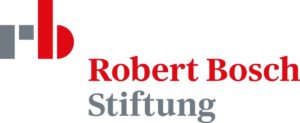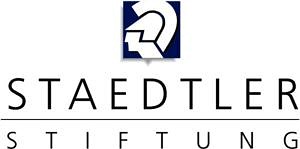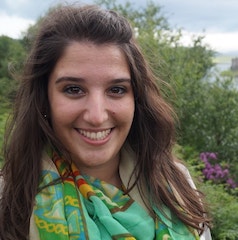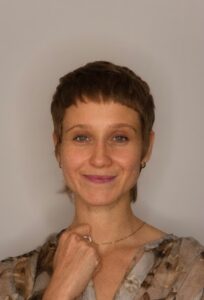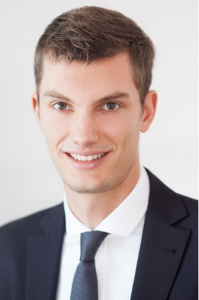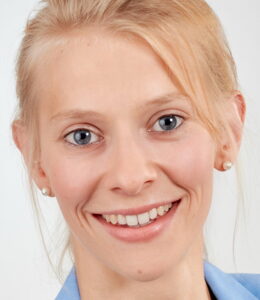Migration, Displacement and Integration
Our Research Focus
Our migration, displacement and integration research is located at the various policy levels: global /international, regional, national and local. Our teams have broad national and international research networks and are also active in policy advice and knowledge transfer to policy makers and the media. Research in this area also benefits from the institutional bridge to the topic of migration and human rights, as our projects are closely linked to the FAU Research Center for Human Rights Erlangen-Nuremberg (CHREN) and in part also settled there.
Current Projects
Project management: Prof. Dr. Petra Bendel
Research fellow: Tino Trautmann
Duration: 01.02.2020 – 31.12.2029
Websites: FFVT – Flucht- und Flüchtlingsforschung: Vernetzung und Transfer & FAU CHREN Research: FFVT
Project description:
Forced Migration and Refugee Studies: Networking and Knowledge Transfer (FFVT) is a cooperation project of the Bonn International Center for Conversion (BICC), the Centre for Human Rights Erlangen-Nürnberg (CHREN, University of Erlangen Nuremberg), the German Institute of Development and Sustainability (IDOS, Bonn) and the Institute for Migration Research and Intercultural Studies (IMIS, University of Osnabrück). It is funded by the German Federal Ministry of Education and Research (BMBF). At FAU, FFVT is led by Prof Dr Petra Bendel and coordinated by Johanna C. Günther. The aim of the project is to establish a sustainable infrastructure for research on forced migration and refugee studies in Germany to facilitate the internationalisation of this field
Project management: Prof. Dr. Petra Bendel
Research fellow: Yasemin Bekyol, Theresa Wagner
Cooperating partners: Dr. Tobias Weidinger und Dr. Stefan Kordel, Institute for Geography, FAU Erlangen-Nürnberg
Duration: 15.09.2022 – 31.01.2026
Websites: Gesundheit! Teilhabe im Pflegesektor & FAU CHREN: Gesundheit!
Project description:
Due to the increasing need for personnel in the healthcare sector as well as apparent gaps in healthcare provision, specialised personnel from abroad has become indispensable. Their recruitment, but above all their sustainable and long-term employment, depends decisively on the working conditions but also on their social inclusion at and beyond the workplace.
This research project aims to improve conditions for workers with a migration history in the healthcare sector. Ultimately it seeks to analyse how to strengthen their willingness to stay in this highly fluctuating sector. Based on qualitative research as well as coaching sessions and workshops with employees and key actors in the healthcare sector, this project aims to
- define working conditions from the perspective of employees
- gain scientific knowledge on current conditions in healthcare facilities as well as municipalities with regards to equitable employment of care workers with a migration history
- give practice-oriented impulses and recommendations for improving the professional and social inclusion of care workers at and beyond their workplace
- support representatives from municipalities as well as key actors in the healthcare sector with the precise design of concrete measures and packages by means of coaching sessions
Funded by the Mercator Foundation, the project is based at the Centre for Human Rights Erlangen-Nuremberg (CHREN) and started on September 15th, 2022. Cooperating project partner is the Institute of Geography at FAU
Project management: Prof. Dr. Petra Bendel, Prof. Dr. Hannes Schammann & Dr. Danielle Kasparick, University of Hildesheim
Duration: 01.05.2024 – 30.04.2028
Research fellow: Sonja Reinhold, FAU
Time and again, periods of increased displacement present municipalities with the challenge of providing capacities for accommodating people arriving as quickly as possible. However, capacities are regularly reduced in times of decreasing migration. Upon increases of arriving refugees makeshift solutions are then set up again. This is costly for local authorities and ties up human and financial resources that are urgently needed elsewhere. In addition, the ad hoc, unsustainable solutions often do not offer structures that meet the needs of vulnerable people.
Scientifically sound solutions dedicated to the accommodation of refugees have so far mostly remained at an abstract level and often do not do justice to the heterogeneity of municipal structures. Municipalities often have to develop concrete solutions themselves. On a practical level, we do observe innovative approaches here and there in the international arena, which are the result of great local commitment and could prove to be good practice – however, these have only been systematically tested in individual cases and have not been examined for their scalability.
The project “More than four walls – innovative ideas for sustainable accommodation in and with municipalities”, the University of Hildesheim and FAU Erlangen-Nuremberg therefore want to identify existing potential and (further) develop innovative and sustainable concepts for housing for refugees and other groups together with practitioners so that they can be implemented in municipalities. To this end, the project team – consisting of project leads Prof. Dr. Petra Bendel at FAU, Prof. Dr. Hannes Schammann and Dr. Danielle Kasparick from University Hildesheim as well as research fellow Sonja Reinhold at FAU – will cooperate with structurally differing municipalities that aim to analyze their existing solutions, jointly develop new approaches and implement them in practice.
At FAU Erlangen-Nuremberg, the project is based at the Research on Migration, Displacement and Integration and the FAU Research Center for Human Rights Erlangen-Nuremberg (FAU CHREN)– The project runs from 01.05.2024 to 30.04.2028 and is funded by the Mercator Foundation.
Completed Projects
Project management: Prof. Dr. Petra Bendel, Prof. Dr. Hannes Schammann & Dr. Danielle Kasparick, University of Hildesheim
Duration: 01.05.2021 – 30.04.2025
Research fellows: Sonja Reinhold, FAU, and Katharina Euler, University of Hildesheim
Websites: Match’In: Pilot project for the placement of asylum seekers and refugees & FAU CHREN: Match’In
This project is dedicated to the development of a new mechanism for the distribution and allocation of refugees and asylum seekers from the federal states to the municipalities. To this end, the University of Hildesheim and the Friedrich-Alexander University of Erlangen-Nuremberg are cooperating with federal states, municipalities and representatives of refugees. A specially developed algorithm will consider both the individual requirements and needs of those seeking protection on the one hand and the existing structures and resources of the municipalities on the other to achieve a better alignment (“matching”). This shall help to better address the needs of persons seeking protection, to utilize the potential of migration for municipal development, improve integration and participation, and reduce secondary migration. The project is funded by Stiftung Mercator.
For questions regarding the Match’In pilot project please contact: Sonja Reinhold, LL.M.
Project management: Prof. Dr. Petra Bendel
Research fellows: Dr. Janina Stürner-Siovitz
Websites: Equal Partnerships – African Intermediary Cities as Actors and Partners in Urban Migration Governance & FAU CHREN: Equal Partnerships
Duration:01.11.2021 – 31.10.2024
Project description:
Africa is witnessing an ongoing transformation from rural to increasingly plural urban societies. While this transformation has been well-documented, the focus of scholarship and practice has been predominantly on human mobility towards and into major urban areas and capital cities. In contrast, intermediary cities, the in-between the rural and the metropolitan, have been largely absent in academic and policy debates. The Equal Partnership works with African intermediary cities to explore collaborative, urban migration governance. The project is jointly developed by the Friedrich-Alexander-University Erlangen-Nürnberg, the city network United Cities and Local Governments of Africa (UCLG Africa), the German Institute of Development and Sustainability (IDOS), and the social enterprise Samuel Hall. We work in cooperation with six intermediary cities in East, North, and West Africa. Through participatory research, workshop, and networking formats, we bring together local, national, and international actors to develop practical impulses and policy recommendations to co-shape multi-stakeholder partnerships for urban migration governance in African intermediary cities.
The project is supported by the Robert Bosch Stiftung and based at the Centre for Human Rights Erlangen-Nürnberg (CHREN).
Find city reports and multi-stakeholder mappings from our research partnerships with Garissa (Kenya), Gulu (Uganda), Kumasi (Ghana), Oujda (Morocco), Saint-Louis (Senegal) and Sfax (Tunisia) on the Equal Partnerships website. The website furthermore presents videos, blog posts, policy papers and podcast episodes exploring different aspects of multi-stakeholder partnerships for urban migration governance in intermediary cities: equal-partnerships.com
Project management: Prof. Dr. Petra Bendel
Research fellow: Sonja Reinhold, Theresa Wagner
Duration: 01.11.2020 – 31.03.2023
Publication (German): https://www.bosch-stiftung.de/de/publikation/brennglas-corona
Interview (German): https://www.bosch-stiftung.de/de/wir-muessen-die-kommunen-resilienter-machen
The explorative research project Burning lens Covid-19: Local integration policy in times of a global pandemic is dedicated to give an insight into the impact of the Covid-19-pandemic on local integration policy. It shows new and enhanced challenges for local actors and carves out strategies that are suited to adequately respond to times of crisis. The project team develops concrete recommendations in order to strenthen municipal integration policy and, hereinafter, resilience on the local level. The project is funded by the Robert Bosch foundation.
Study for the European Parliament
Project management: Prof. Dr. Petra Bendel
Research fellow: Yasemin Bekyol
Duration: 15.01.2016 – 15.06.2016
Project description:
Commissioned by the European Parliament’s Policy Department for Citizens’ Rights and Constitutional Affairs at the request of the Committee on Women’s Rights and Gender Equality, this study provides an overview of the implementation of Directive 2013/33/EU laying down standards for the reception of applicants for international protection. It outlines the legal framework and examines how gender related aspects and the reception needs of vulnerable groups are considered in practice in Munich (Germany) and Brussels (Belgium).
This study included delegation visits to Munich and Brussels with MEPs as well as a comparative qualitative field study in both cities.
The study is available online:
Bekyol Yasemin, Bendel Petra (2016): “Reception of female refugees and asylum seekers in the EU – Case study Belgium and Germany”, Study for the Directorate General for Internal Policies, Policy Department C: Citizens’ Rights and Constitutional Affairs, Women’s Rights & Gender Equality, Brussels, 54 pages. Zur Studie.
Project management: Prof. Dr. Petra Bendel
Research fellow: Yasemin Bekyol
Duration:01.08.2020 – 31.03.2021
Website: covid-integration.fau.de (German)
Project description:
The study, conducted by FAU Erlangen-Nuremberg in participation with the University of Hildesheim, funded by the Mercator Foundation, examined the impact of the pandemic on migration movements and on integration in Germany. COVID-19 spread extraordinarily quickly and, among other things, severely restricted mobility and migration, especially in the short term. In addition to a health crisis, Covid-19 has also led to an economic crisis, the extent of which we cannot yet grasp. For many population groups, access to economic participation, housing, nutrition and education was restricted. Based on a comprehensive desktop research as well as on scenario-building, the study drafts a picture of the future based on the question: “How does integration in Germany look like in 2030?” The aim was to develop several plausible scenarios with experts on the medium-term future of migration and, above all, integration in Germany. In addition, the study aimed at generating recommendations for action on the basis of these scenarios and finally problematised the question on how political decision-makers and social actors can set course in order to meet the particular challenges of integration policy in crisis situations.
Project management: Prof. Dr. Petra Bendel, Prof. Dr. Yesim Erim, Prof. Dr. Silke Jansen, Prof. Dr. Nicolas Rohleder
Research fellows: Mojib R. Atal, Andrea Borho, Felicitas Hauck, Lucía Romero Gibu
Project website: Verbal Violence against Migrants in Institutions (VIOLIN)
Duration: 01.04.2019 – 31.03.2022
Project description:
VIOLIN is a cooperation project of political science, linguistics, health psychology and psychosomatics.
In this project, the focus was on hidden forms of exclusion and symbolic violence in the institutional environment towards migrants. The aim of the project was to make this form of violence visible and to develop a comprehensive model for the integration of migrants in new socio-cultural environments from the knowledge gained.
The project is financially supported by the STAEDTLER Stiftung.
Project management: Prof. Dr. Petra Bendel und Prof. Dr. Hannes Schammann, University of Hildesheim
Research fellow: Sandra Müller, M.A.
Duration: 01.09.2017 – 31.05.2020
Project description:
How do municipalities in urban and rural regions in Germany organize the reception and inclusion of immigrants? Can we identify institutional change in local integration politics after the massive arrival of refugees in 2015 and 2016? How can we explain the divergence/convergence of institutional settings? To what extent can urban and rural communities learn from each other? These are some of the research questions we will answer by analysing approximately 100 municipalities and districts (Landkreise) in Germany. In particular, we will focus on ‘urban-rural-comparisons’ and the divergence/convergence between regions that differ significantly regarding their economic prosperity.
The project will run from September 2017 until end of January 2020 and is funded by the Robert Bosch Stiftung.
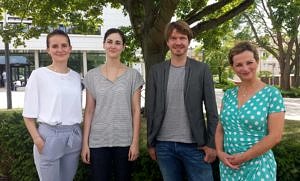
Publications (German):
Publication of the study on the website of the Robert Bosch Foundation: ![]() Studie.
Studie.
1.7.2020: Article at Migazin: “Studie: Kommunen haben Integrationsmanagement verbessert”. ![]() Zum Artikel.
Zum Artikel.
30.6.2020: Article at Neue Wiesentbote: “FAU: Zwei Welten? Integrationspoltik in Stadt und Land” ein Artikel. ![]() Zum Artikel.
Zum Artikel.
Foundation-funded study
Project management: Prof. Dr. Petra Bendel
Research fellow: Daniel Riemer
Duration: 01.01.2016 – 31.05.2016
Project description:
Reception, accommodation, access to healthcare, education and information as well as work and leisure of refugees are key areas when it comes to refugee integration at the level of Länder and municipalities. There is a considerable need for information on good practices and for networking of already existing projects in these areas. Given the current “crisis mode”, municipalities, volunteers and service providers do not have the time and capacities to develop criteria for good practices and to review already existing integration projects for their possible transferability.
Thus, this planned project “Learning from each other: Best practice examples in municipal refugee policy” comes in. Based at the Central Institute for Regional Research at the Friedrich-Alexander University of Erlangen-Nuremberg and building on a prior pilot project conducted on the needs of refugees themselves, this project aims at developing criteria for the selection of good and best practices, followed by research and categorisation of a large number of innovative practice projects in the federal territory and an in-depth study of selected projects on the ground.
Project management: Prof. Dr. Petra Bendel und Prof. Dr. Hannes Schammann, University of Hildesheim
Staff: Dr. Janina Stürner-Siovitz und Dipl.-Soz. Christiane Heimann
Duration: 01.04.2018 – 31.10.2021
Website: in progress
Project description:
This innovative academic project evaluates the impact of transnational cities’ networks on European migration policies and develops guidelines in cooperation with politicians and practitioners to strengthen their work in the European multi-level governance system. To this end, the activities of formal and informal transnational cities’ networks are examined. A special focus is placed on the EUROCITIES network, from which the movement of Solidarity Cities originated. This movement aims at demonstrating cities’ political leadership in light of integration and relocation challenges within the European Union. Besides, the EUROCITIES build the Council of European Municipalities and Regions, which is the European umbrella organisation of municipal associations in the member states. This study analyses both network activities and strategies of individual network members, such as Athens (Greece), Barcelona (Spain), Essen (Germany), Gdansk (Poland), Ghent (Belgium), Leeds (United Kingdom), Ljubljana (Slovenia) and Palermo (Italy). A mixed-methods approach is applied, combining the analysis of policy documents and expert interviews. The latter include interviews with experts of the EUROCITIES network as well as the local and the EU level. The guiding research question of this study is: How can local bottom-up agenda setting address the current migration governance crisis of the European Union in a transnational way? Hence, the aim of the project is threefold. Firstly, it offers insights into the strategies the different cities pursue and the transnational relations they use in accordance to their interests. Secondly, it evaluates the mechanisms initiated by the municipal associations with regard to their specific target. Thirdly, guidelines are developed in cooperation with politicians and practitioners and published in policy briefs, which are presented in a final meeting in Brussels. Due to the current brisance of this topic, its highly innovative perspective on the making of EU migration policies and the lack of research in this area, this project will set a milestone in understanding the role and power of municipal associations in a newly unfolding sphere of European multi-level migration governance.
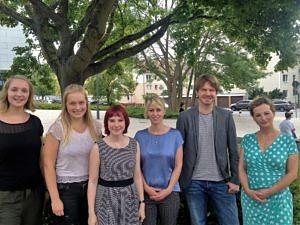
Dipl.-Soz. Christiane Heimann, Prof. Dr. Hannes Schammann, Prof. Dr. Petra Bendel
